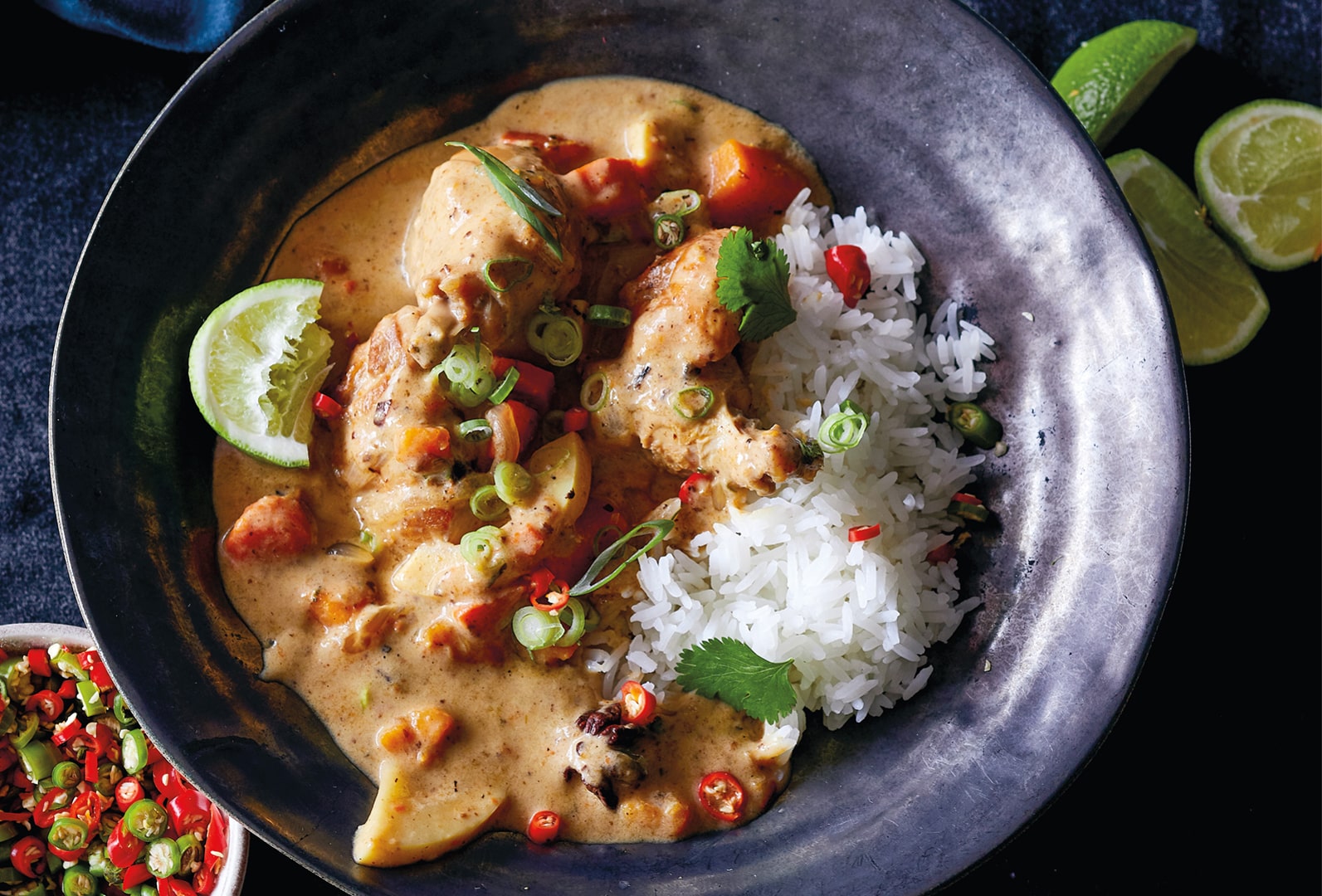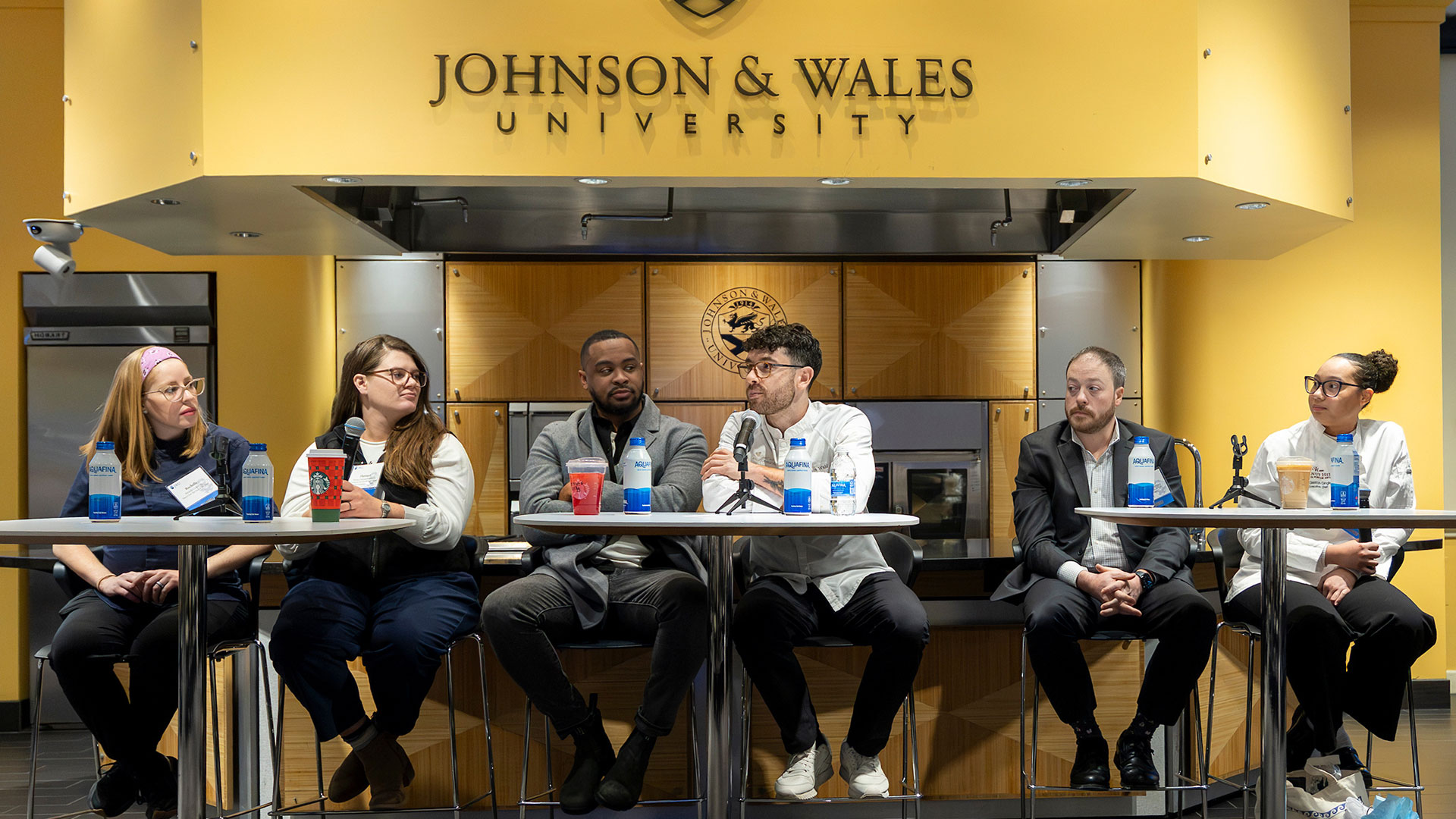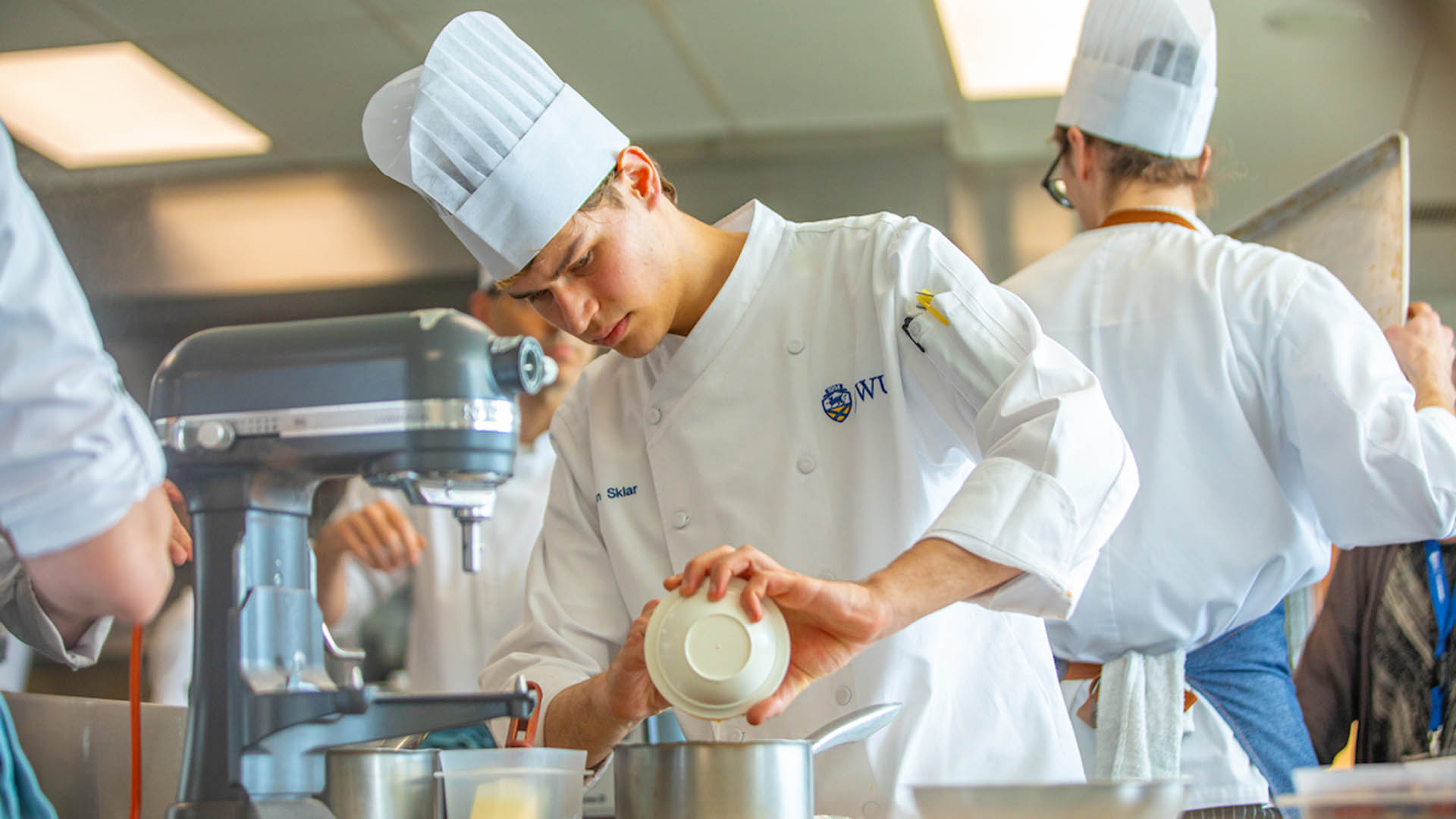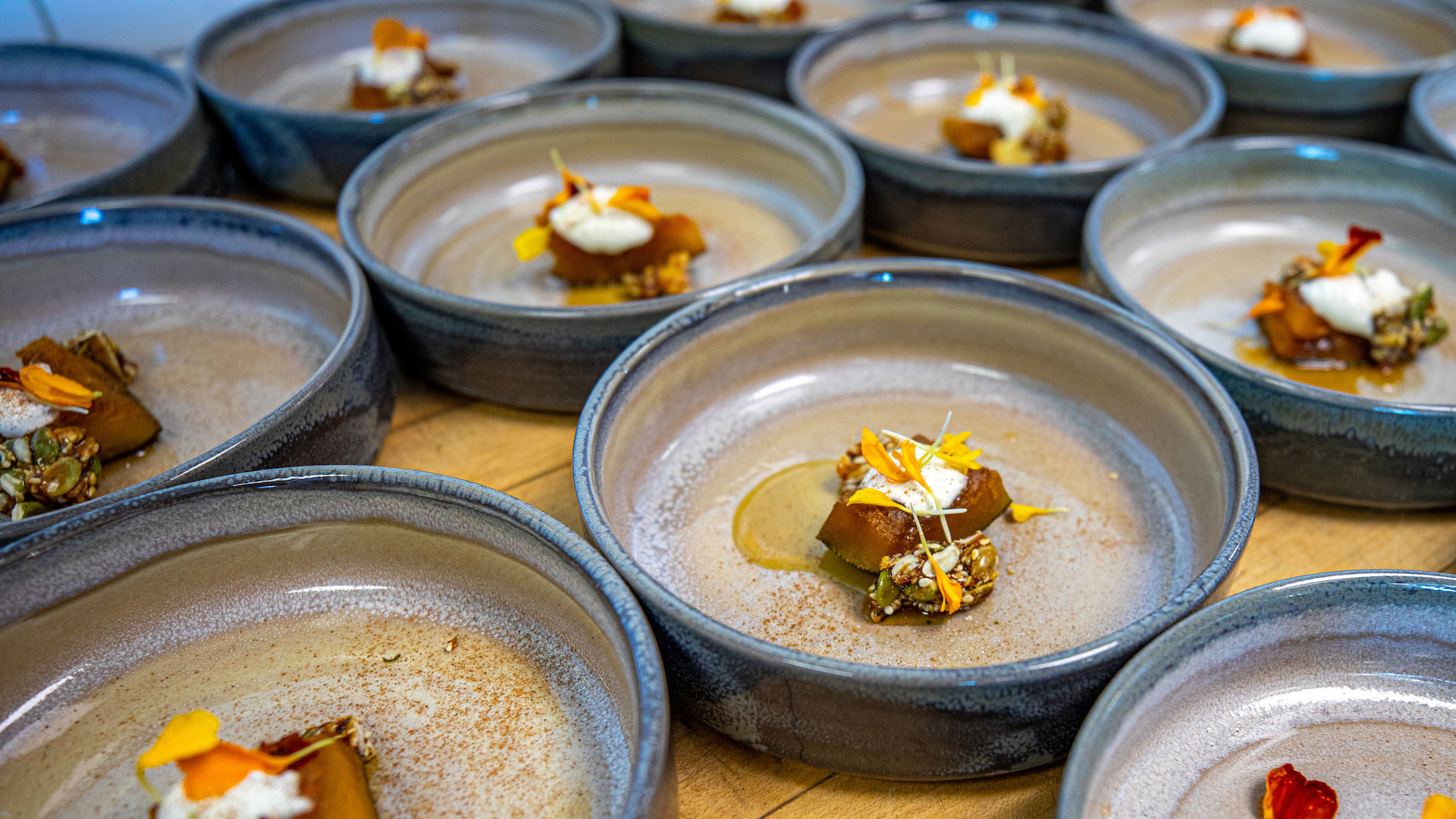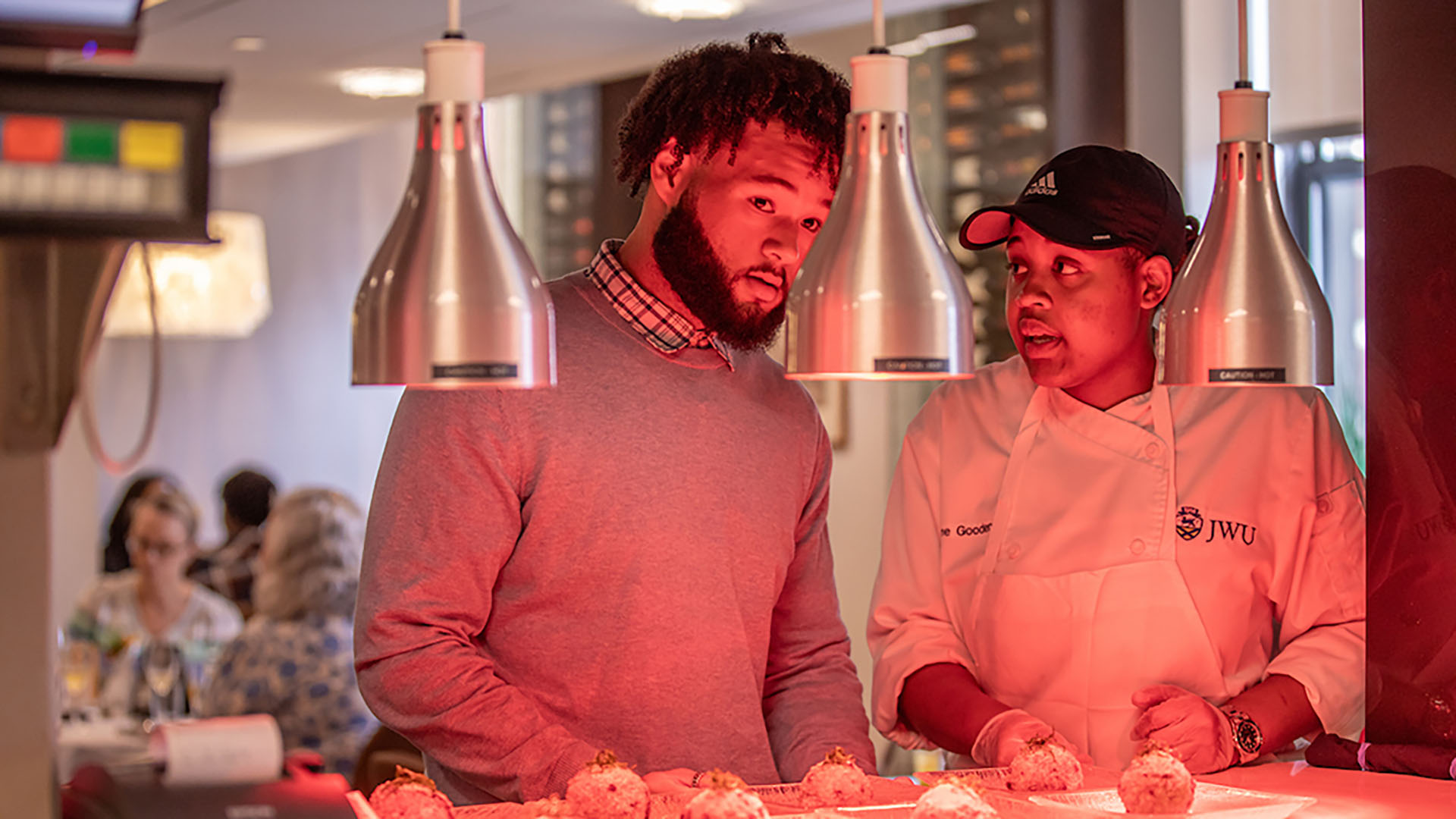Rediscovering the Joys of Home Cooking with Michael Ruhlman
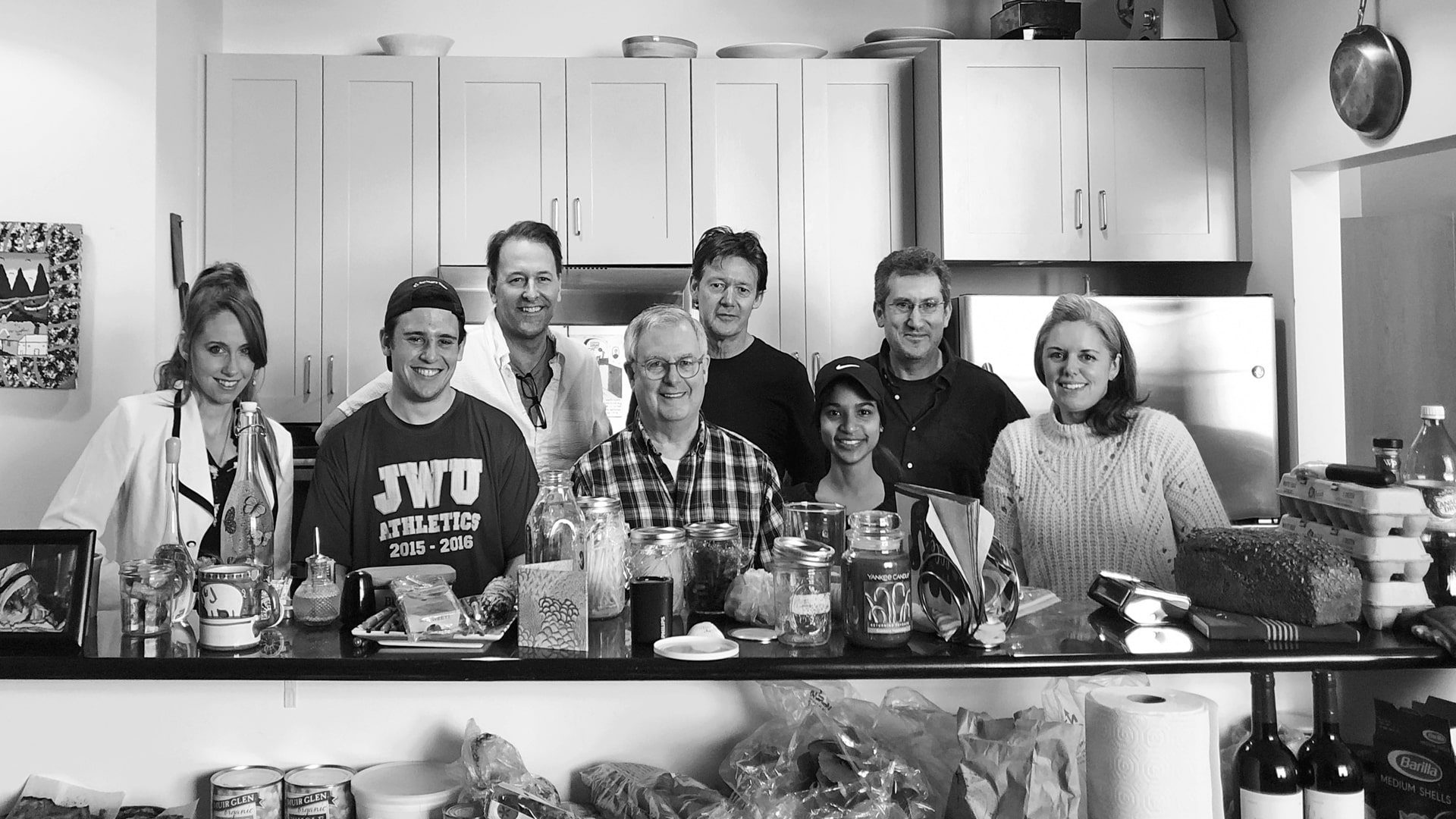
In a parallel universe, Michael Ruhlman visited JWU’s Providence Campus last week to talk about his latest book, “From Scratch: 10 Meals, 175 Recipes, and Dozens of Techniques You Will Use Over and Over” (Abrams, 2019). In our current universe, the event (and all others on campus) was canceled due to the COVID-19 shutdown. Instead, we caught up by phone to discuss the genesis of the book, which is illustrated by Quentin Bacon’s detailed step-by-step photos. Two JWU seniors (both now alumni), Owen Macca ’19 and Mariamelia Valdez Heredia ‘19, served as culinary assistants during the photo shoots that took place in Providence over two jam-packed weekends.
“From Scratch” focuses on 10 favorite meals — from roast chicken to lasagna, steak frites to cassoulet — and deconstructs the foundational elements that make up each dish. Take lasagna for example: You can roll out your own pasta, slow cook your own sauce and even make your own ricotta and/or mozzarella. Or you can choose an item or two to make from scratch and buy the rest — the book is set up as a choose-your-own-adventure that puts the reader in control. “The world is better and we are happier when we cook our own food,” Ruhlman writes. This book is his manifesto.
“The world is better and we are happier when we cook our own food.”
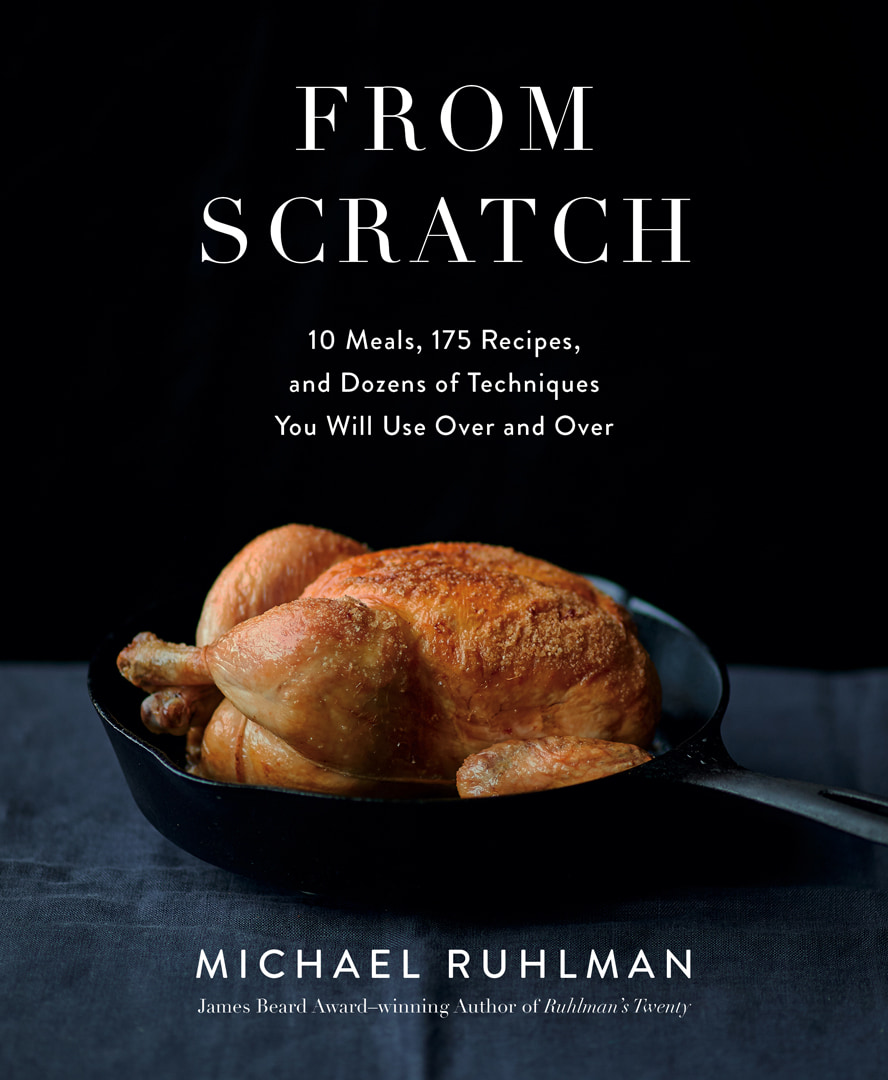 “I’d signed a contract to write a book on looking at water and fire and high heat versus low heat, but it wasn’t really coming together,” he explains. “But I started writing about roast chicken, which is one of my favorite things to cook and eat. You learn so much from just this one dish. You learn how to make a sauce, you learn how to roast, and how to season. So much teaching there. I was talking with my wife, Ann Hood, who is a writer here in Providence and also a great home cook. And I said, ‘I wonder what other meals we could make that have all these lessons?’ It was getting late. And she jumped in the shower and then I heard the shower curtain whip back and she shouts out, ‘Lasagna!’ And I thought, hmm, tomato sauce, meat sauce, how to make pasta…”
“I’d signed a contract to write a book on looking at water and fire and high heat versus low heat, but it wasn’t really coming together,” he explains. “But I started writing about roast chicken, which is one of my favorite things to cook and eat. You learn so much from just this one dish. You learn how to make a sauce, you learn how to roast, and how to season. So much teaching there. I was talking with my wife, Ann Hood, who is a writer here in Providence and also a great home cook. And I said, ‘I wonder what other meals we could make that have all these lessons?’ It was getting late. And she jumped in the shower and then I heard the shower curtain whip back and she shouts out, ‘Lasagna!’ And I thought, hmm, tomato sauce, meat sauce, how to make pasta…”
Ultimately, the 10 essential dishes he chose spun out into more than 170 building-block recipes. His publisher, Abrams, suggested a photo-heavy visual approach, and picked a photographer who had worked heavily with Ina Garten. The biggest challenge? They would have two weekends to photograph everything on their list — a tall order, for sure, and one that would require an extremely organized shoot.
“It was a lot to cram in. It was a lot of work,” Ruhlman explains. “But it was made less stressful because [Abrams publisher] Michael Sand said, ‘We’d be happy to pay for a couple of people to help you. Perhaps you can get some students.’”
Owen and Maria had not met the “From Scratch” team — which also included Sand, art director Deb Wood, and Providence restaurateur Bruce Tillinghast (a former JWU instructor) — before they got thrown in the deep end of shopping, prepping, and other tasks from the shoot’s extensive to-do list. But they got up to speed quickly, notes Ruhlman: “They were just exactly what you want. They showed up on time with everything that they said they would do. They weren’t stylists, per se, but Maria especially was very helpful in the styling department. They were incredibly helpful and, and in fact, invaluable. I adored them.”
The shoot was set up in Ruhlman and Hood’s Providence loft, which offered a large enough kitchen to work comfortably in — with the additional bonus of natural light.
“Neither [myself nor Maria] had worked on a cookbook shoot before,” notes Macca, who is currently a pastry chef at Manresa, the Michelin-starred restaurant run by JWU alum David Kinch ’81, ’14 Hon. “But in my opinion cooking is cooking. You must do it with care, attention, and passion — no matter if the food is being served to strangers, yourself, your family, or if its main purpose is to be photographed — those three core virtues must be present.”
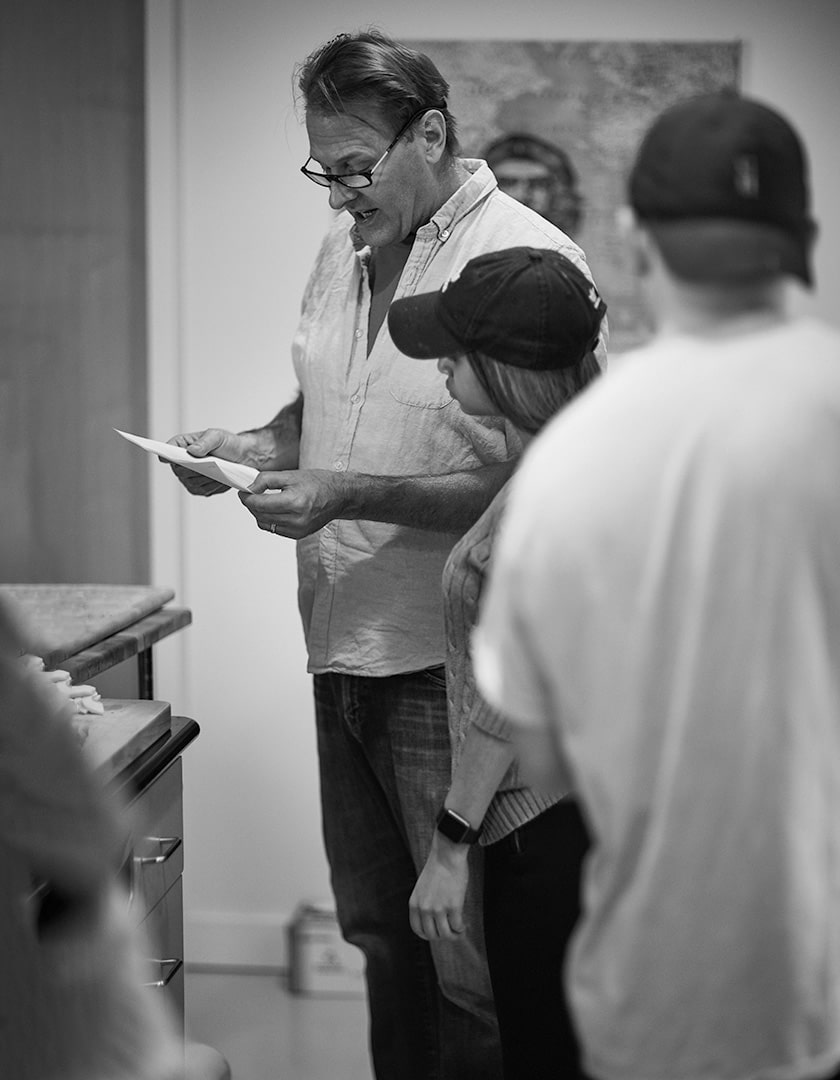 The team quickly earned one another’s trust and fell into a groove, explains Macca: “It was a lot of work, and a lot of food, but at the end of the day, we were just cooking great food, with great people.”
The team quickly earned one another’s trust and fell into a groove, explains Macca: “It was a lot of work, and a lot of food, but at the end of the day, we were just cooking great food, with great people.”
Macca’s JWU education prepared him well for the high volume, high stakes shoot. “Maria and I both had a great base knowledge from school, and combining that with our experience in the industry from internships and other jobs, we were able to be trusted executing the written recipes Michael would give us with little direction needed. By the second shoot, [Ruhlman] was able to facilitate and oversee all of the shots while we were able to just cook, clean, and get the team the food for the shots that they needed.”
Macca loved the homey food they cooked during the shoot, but none more than Ruhlman’s personal favorite, the roast chicken: “One of my favorite things I learned from Michael, something that I will do for the rest of my career, no question, is roasting chicken at 450 degrees Fahrenheit until it’s done. It is hands down the best technique I have found to roast a chicken. I have seen chefs do all these crazy things, all of their ‘tricks’ to a perfect roast. But none better than 450 ‘till it’s done; I will do it when roasting chicken forever.”
Now living in California, Macca is enjoying working pastry at Manresa — a new area of focus for him. With Manresa offering limited takeout, he’s been working on building up his confectionery skills: “I am enjoying baking at home, as well as my current obsession, chocolate bon bons. Tempering chocolate, making ganache, and casting molds for bon bons has been my main focus at home recently, and quite possibly will be an obsession of mine for some time.”
Ruhlman has been keeping busy with multiple writing projects; he’s also posting regular blog posts extrapolating on “From Scratch” dishes and offering up Friday cocktail-hour recipes. When I ask him about the one most versatile thing everyone should have in their pantry (since we’re all rediscovering home cooking during this surreal time), he thinks for a moment. “There’s not one thing. It’s more like having a strategy. You want to have some aromatic vegetables, carrots, onion. You want to have staples that don’t go bad, like rice and beans. And you need salt!” Most of all, it’s about being in the moment and recognizing the ritual of cooking: “You do it by acknowledging that putting food into our body is sacrosanct and actually should be a pleasure as well.”
Top: The From Scratch kitchen team, L-R: Photo Assistant Kristen Walther, Owen Macca '19, Michael Ruhlman, Bruce Tillinghast, Quentin Bacon, Mariamelia Valdez Heredia '19, Michael Sand, and Deb Wood. Below: JWU Providence Chef Neath Pal’s Cambodian curry, which is featured in the book. Photos by Quentin Bacon courtesy of Abrams Publishers.
